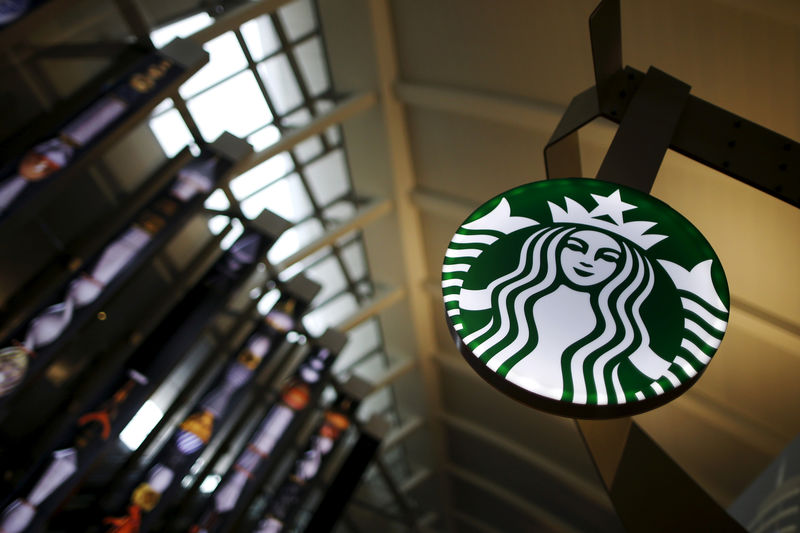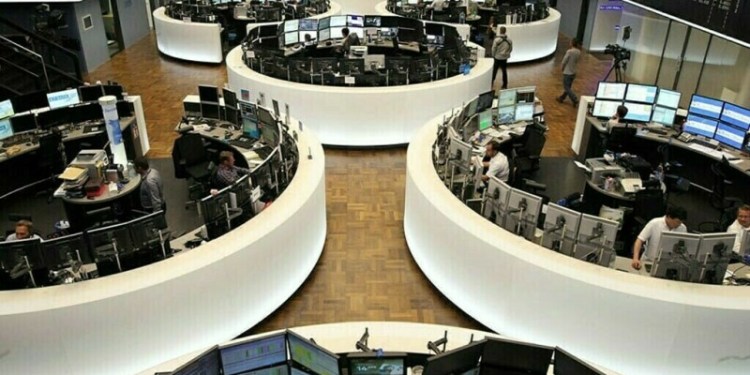 © Reuters. FILE PHOTO: A Starbucks store is seen inside the Tom Bradley terminal at LAX airport in Los Angeles
© Reuters. FILE PHOTO: A Starbucks store is seen inside the Tom Bradley terminal at LAX airport in Los AngelesAMSTERDAM (Reuters) – A network of favorable tax treaties and an industry devoted to minimizing tax bills has made the Netherlands the conduit for an annual flow of capital five times the size of its own economy, new research showed on Thursday.
Statistics Netherlands published the data for the first time — based in part on information from the Dutch central bank — showing that the country had received 4.6 trillion euros ($5.2 trillion) in “foreign direct investment” in 2017.
But only a fifth of that money actually stayed in the $836 billion Dutch economy, as the equivalent of $4.2 trillion was channeled away immediately through mailbox companies, corporate shell companies known as special purpose vehicles.
“The main reason for multinationals to create a special purpose vehicle in the Netherlands is to lower their tax bill as far as possible”, the researchers said, repeating a charge frequently made by tax fairness advocates.
Thanks to a network of nearly 150 bilateral tax treaties around the globe, the Netherlands has been a key hub for corporate entities shifting profits to lower tax jurisdictions for years. Thursday’s report gave the first comprehensive view of the capital flow this has created.
The country houses approximately 14,000 mailbox companies, which shifted more than half of their investments to countries outside the European Union in 2015, the researchers said. Around a third of the money ended up in offshore tax havens.
After years of defending its tax deals as an indispensable part of its business model, the Dutch government last year said it would take steps to curb tax evasion, mainly by introducing a tax on royalties, interest and dividend streams to tax havens, effective from 2022.
The Netherlands is currently battling a fine from the EU for giving the U.S. coffeehouse chain, Starbucks (NASDAQ:), tax advantages that amounted to state aid.
Google (NASDAQ:) and Apple (NASDAQ:) also route money to the country and reinvest it abroad, rather than repatriating it to the United States where it would be subject to higher tax rates.
The Netherlands is also popular with rock stars such as the Rolling Stones and U2, who until now have benefited from the country’s favorable treatment of royalties.
Fusion Media or anyone involved with Fusion Media will not accept any liability for loss or damage as a result of reliance on the information including data, quotes, charts and buy/sell signals contained within this website. Please be fully informed regarding the risks and costs associated with trading the financial markets, it is one of the riskiest investment forms possible.
Source: Investing.com



























